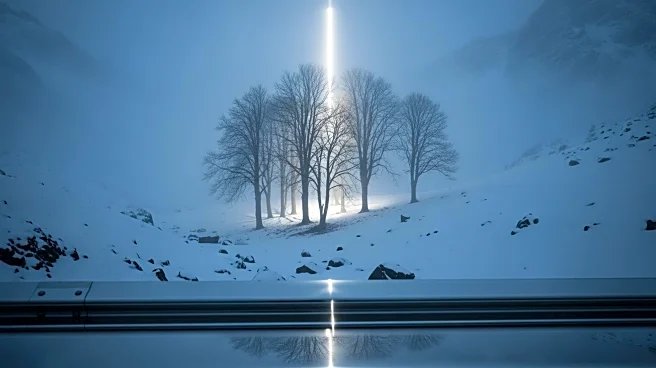Rapid Read • 8 min read
A recent scientific collaboration has explored the impact of space weather on human behavior during the Laschamps Excursion, a geomagnetic event that occurred approximately 41,000 years ago. This event caused Earth's magnetic field to weaken significantly, leading to increased exposure to solar radiation and auroras appearing closer to the equator. The collaboration involved archaeologists and geophysicists who studied the effects of this geomagnetic anomaly on ancient human populations. Their research suggests that increased UV radiation may have influenced human behavior, prompting adaptations such as seeking shelter, using protective clothing, and applying ochre as sunscreen. The study highlights the interdisciplinary approach to understanding how space weather may have affected human innovation and adaptability.
AD
The study of ancient space weather events like the Laschamps Excursion provides valuable insights into how geomagnetic disruptions can impact human societies. Understanding these effects is crucial as similar events could occur in the future, potentially affecting modern technology and human health. The collaboration between archaeologists and geophysicists underscores the importance of interdisciplinary research in addressing complex environmental challenges. By examining past human responses to space weather, scientists can better anticipate and prepare for future geomagnetic events, ensuring that societies are equipped to handle potential disruptions in technology and health.
Future research may focus on refining models to better understand the specific impacts of geomagnetic events on human populations. Scientists could explore how modern technology and infrastructure might be affected by similar disruptions, leading to improved preparedness strategies. Additionally, further interdisciplinary collaborations could expand the scope of research, integrating more fields to address the multifaceted nature of space weather impacts. This could involve studying the potential effects on communication systems, power grids, and other critical technologies.
The study raises ethical considerations regarding the protection of vulnerable populations from increased radiation exposure during geomagnetic events. It also highlights the cultural significance of auroras and other atmospheric phenomena, which may have influenced ancient rituals and beliefs. Long-term shifts in human behavior and technology adaptation could be triggered by future geomagnetic events, emphasizing the need for proactive measures to mitigate potential risks.
AD
More Stories You Might Enjoy














